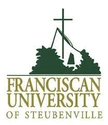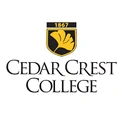
Lincoln University
1570 Baltimore Pike, Lincoln University, PA 19352, USA

position: 549
What is the history of Lincoln University?
Lincoln University, originally known as The Ashmun Institute, was established in 1854 by John Miller Dickey and his wife Sarah Emlen Cresson. The couple, who were part of the Society of Friends in Philadelphia, were deeply committed to education and service. The university was renamed in 1866 to honor President Abraham Lincoln, the signatory of the Emancipation Proclamation. The founders of Lincoln University believed that education was the key to freedom and empowerment for African Americans, a belief reflected in the university's motto, "If the Son shall make you free, then ye shall be free indeed."
In the era before the Civil War, opportunities for African Americans to attend white colleges were scarce. To address this, several colleges for African Americans, now known as Historically Black Colleges and Universities (HBCUs), were established. Lincoln University, like most HBCUs, began as a private institution, often supported by northern religious mission societies and African American philanthropic organizations. Unlike many early HBCUs, Lincoln University had the resources to offer a full college curriculum.
Despite facing financial struggles and difficulties in attracting students in its early years, Lincoln University persisted and continued to grow. It made history in 1872 by becoming the first HBCU to offer a degree in agriculture, and again in 1875 when it became the first to offer a degree in arts and sciences.
Over the years, Lincoln University has evolved to meet the changing times. It became a public institution in the 1960s and started admitting women. In the 1970s, it expanded its land-grant status with the Cooperative Extension Center and acquired additional farm property. The 1990s saw the integration of nursing, teacher education, computer science, and agribusiness into its core offerings.
Today, Lincoln University offers a wide range of undergraduate and graduate programs in fields such as business, education, and the sciences. It also maintains a strong commitment to community service and social justice, with numerous programs and initiatives aimed at promoting diversity and inclusion.
Lincoln University has produced many accomplished alumni, including poet and social activist Langston Hughes, Supreme Court Justice Thurgood Marshall, and Kwame Nkrumah, the first President of Ghana.
In recent years, Lincoln University has faced financial challenges and a decline in enrollment. However, it has taken proactive steps to address these issues, such as restructuring its academic programs, increasing its focus on online education, and launching a fundraising campaign to support its mission and ensure its long-term sustainability.
What are the faculties and departments at Lincoln University?
Lincoln University provides a broad spectrum of academic departments for both undergraduate and graduate students. These departments encompass a variety of disciplines, including Biology, Business & Entrepreneurial Studies, Chemistry & Physics, Computer Science, Health Science, History, Pan-Africana Studies, Philosophy, and Religion, Languages & Literature, Mass Communications, Mathematical Sciences, Political Science, Psychology & Human Services, Sociology & Criminal Justice, and Visual & Performing Arts. The university's commitment to quality education is reflected in its 15:1 student to faculty ratio, which ensures small class sizes and a supportive learning environment.
The Visual and Performing Arts Department at Lincoln University is enriched by the presence of visiting assistant professors such as Victoria Pitre and Kuhn. In the History, Pan Africana Studies, Philosophy, and Religion Department, students have the opportunity to learn from associate professor Dr. Safro Kwame. Meanwhile, the Chemistry and Physics Department is home to assistant professor Dr. Victoria Lakey.
Lincoln University also caters to adult learners through its School of Adult & Continuing Education - Graduate Programs. Shaisa Pittman, a program assistant, is available to assist students in this program. The university's Athletics & Recreational Services department is overseen by Anthony Plá, who serves as the Assistant Director of Athletics for Facilities and Head Basketball Coach.
The Center for Excellence in Teaching and Learning at Lincoln University, directed by C. Marlene Lacy, provides professional development opportunities for faculty and staff. The university also prioritizes student success, with a dedicated department headed by Fred-Rick L. Roundtree, the Assistant Provost and Dean of First-year Students.
In summary, Lincoln University offers a wide range of academic departments and support services, ensuring a comprehensive and supportive learning environment for all students.
What is the location of Lincoln University?
Lincoln University is nestled in the Northeast region of the United States, specifically in the city of Lincoln University, Pennsylvania. The university's main campus is situated in the southern part of Chester County, an area known for its picturesque rolling farmlands and wooded hilltops. The campus, which comprises 56 buildings, is conveniently located within an hour's drive of several major cities. These include Philadelphia, Baltimore, Wilmington, and Newark, providing students with ample opportunities for cultural exploration and potential internships or job prospects.
The university's official address is 1570 Baltimore Pike, Lincoln University, with the ZIP code being 19352. This location is easily accessible, with the nearest airport being Philadelphia International.
What is the mission and vision of Lincoln University?
Lincoln University, the inaugural degree-awarding Historically Black College and University (HBCU) in the United States, has a well-defined mission and vision. The university's primary objective is to provide education that empowers students to become leaders in their communities and catalysts for global change. This is achieved through a rigorous liberal arts education that encourages active participation and collaborative learning.
The university's educational approach is unique, integrating academic and co-curricular programs with its rich legacy of global engagement, social responsibility, and leadership development. Lincoln University places a strong emphasis on cultivating the character, values, and standards of excellence that are necessary for students to become responsible global citizens.
The vision of Lincoln University is to serve as a national exemplar for 21st-century liberal arts undergraduate education and for pioneering graduate and professional programs. The university is committed to providing students with the necessary resources and support to succeed and accomplish their goals. This vision is encapsulated in Lincoln University's strategic plan, which highlights its core values of academic excellence, diversity and inclusion, social responsibility, and global engagement.
The Office of Student Life and Development at Lincoln University also has a vision. It aims to establish and sustain a comprehensive program that enhances students' personal, professional, and social development through a variety of workshops, programs, and activities.
In essence, Lincoln University's mission is to educate and empower students to become community leaders and world changers. Its vision is to be a national benchmark for both 21st-century liberal arts undergraduate education and innovative graduate and professional programs. The university fulfills its mission and vision by offering a rigorous liberal arts education, integrating academic and co-curricular programs, fostering character and values, and advocating for global engagement and social responsibility.
What is the accreditation of Lincoln University?
Lincoln University holds accreditation from the WASC Senior College and University Commission, a prestigious body that validates the quality of higher education institutions. This accreditation allows the university to enroll non-immigrant students, broadening its reach to international learners.
In addition to this, the Business Studies Unit at Lincoln University has earned specialized accreditation for its business programs. This recognition comes from the International Accreditation Council for Business Education, a body that ensures the quality and relevance of business education worldwide.
Furthermore, Lincoln University is listed in the U.S. Department of Education Database of Accredited Postsecondary Institutions and Programs. This inclusion signifies that the university meets the federal standards for higher education and is eligible for federal aid.
The university also holds membership in the Middle States Commission on Higher Education, another significant accreditation body. The status of Lincoln University's accreditation with this commission is currently reaffirmed, indicating that it continues to meet the standards set by the commission.
The online Masters in Human Services Administration, post-baccalaureate certificates in Early Childhood Education PreK-4, Reading Specialist, and Principal are all accredited programs offered by Lincoln University. Additionally, the university has an accredited location at 351 Kersey Street, Coatesville, PA 19320, providing more options for students.
In summary, Lincoln University holds multiple accreditations from various bodies, ensuring the quality of its programs and its commitment to providing excellent education. These accreditations are crucial for prospective students as they indicate the university's adherence to high educational standards.
Lincoln University Rankings
34 Best Colleges in Pennsylvania in 2023-2024
51 Best Value Colleges in the Northeast in 2023-2024 US
54 Most Popular Colleges in Pennsylvania in 2023-2024
160 Best Colleges in the Northeast in 2023-2024 US
209 Best Public Colleges in 2023-2024
262 Most Popular Colleges in the Northeast in 2023-2024 US
292 Best Value Colleges in 2023-2024
549 Best Colleges in 2023-2024
957 Most Popular Colleges in 2023-2024
Research.com Awards
Lincoln University Profile - Basic Information
Name of the institution
Lincoln UniversityLevel of institution
Four or more yearsGranulation by control over the institution (public/private)
PublicSchool type
Comprehensive higher education institutionSetting type
Suburb: LargeCalendar system
SemestersFoundation year
1854Institution size category
1,000 - 4,999Main student body
CoeducationalInstitutional Category
Degree - granting, primarily baccalaureate or aboveLincoln University Programs and Degrees
 Master's degree
Master's degree Bachelor's degree
Bachelor's degree Other degree
Other degree Certificate of at least 2 years, but less than 4 years
Certificate of at least 2 years, but less than 4 years Associate's degree
Associate's degree Certificate of less than 1 year
Certificate of less than 1 year Postbaccalaureate certificate
Postbaccalaureate certificate Certificate of at least 1 year, but less than 2 years
Certificate of at least 1 year, but less than 2 years Post-master's certificate
Post-master's certificate Doctor's degree - other
Doctor's degree - other Doctor's degree - research/scholarship
Doctor's degree - research/scholarship Doctor's degree - professional practice
Doctor's degree - professional practiceAlumni Salary for Lincoln University Degrees
Degrees
Business, Management, Marketing, and Related Support Services
$29,235Communication, Journalism, and Related Programs
$25,325Health Professions and Related Programs
$48,271Homeland Security, Law Enforcement, Firefighting and Related Protective Services
$39,334Public Administration and Social Service Professions
$27,051Social Sciences
$29,876





















